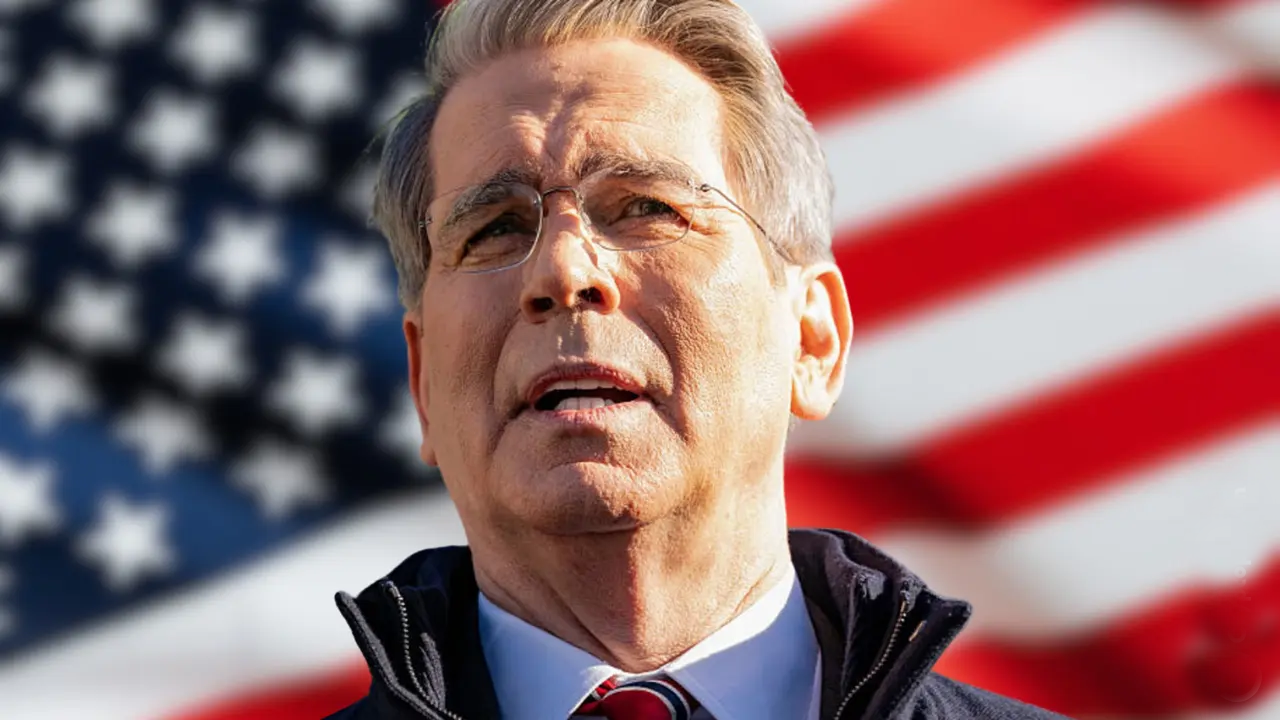
U.S. Treasury Secretary Scott Bessent told the Japanese Nikkei News that the next Federal Reserve chair must possess market credibility, strong data analysis skills, and forward-thinking that goes beyond interest rate policy. He defined a "strong dollar" as maintaining the dollar's status as a reserve currency through sound economic policies, rather than tying it to a fixed exchange rate. About 10 candidates are vying to succeed Jerome Powell in May, including James Bullard, Kevin Hassett, Kevin Warsh, Christopher Waller, and Marc Sumerlin.
U.S. Treasury Secretary Scott Bessent stated that the next leader of the Federal Reserve should be able to view the institution from a broader perspective, not just adjusting interest rates, and warned that the central bank's expanding responsibilities could threaten its independence.
On August 7, Bessent spoke in Washington, outlining the qualities he believes are necessary for the position. He told the Japanese Nikkei News: "This person must have the confidence of the market and the ability to analyze complex economic data." He also added that the next chair should focus on future trends rather than overly relying on historical patterns.
According to Reuters, Bessent is leading the search for a successor to current Fed Chair Jerome Powell, whose term will expire in May. The current list of candidates includes an experienced economic advisor and a former regional Federal Reserve Bank president.
When asked about President Donald Trump's repeated public calls for lower interest rates, Bessent stated that the president has made his position clear, but he emphasized that "ultimately, the Fed is independent."
Bessent Outlines the Broader Implications of "Strong Dollar" Policy
Regarding monetary strategy, Bessent explained that the "strong dollar" defined by his administration is not tied to specific numbers in the market but is linked to the dollar's relative position against other currencies. "A strong dollar policy is about creating policies that can continue to maintain the dollar's status as a reserve currency," he said. "If we have good economic policies, the dollar will naturally strengthen."
Bessent had previously discussed exchange rate issues with Japanese Finance Minister Kato Katsunobu. In May, during the G7 meeting, they agreed that the then-current dollar-to-yen exchange rate was consistent with fundamentals. In June, the U.S. Treasury informed Congress that the Bank of Japan should maintain its tightening policy, believing this would help "normalize" the yen's weak trend.
Bessent expressed confidence that as long as the Bank of Japan focuses on fundamentals like inflation and growth, the exchange rate will adjust itself. He stated that Governor Ueda Kazuo and the Bank of Japan's board are focused on inflation targets rather than exchange rate levels.
The Bank of Japan ended its decade-long massive stimulus policy last year and raised short-term interest rates to 0.5% in January, believing Japan is close to sustainably achieving a 2% inflation target. Since then, policymakers have taken a cautious stance on further rate hikes.
Analysts point out that this slow pace of rate increases is one reason for the yen's weak performance against major currencies. Although the inflation rate has remained above the 2% target for more than three consecutive years, Ueda urged careful assessment of how U.S. tariffs might impact Japan's fragile economy.
The List of Potential Successors to Powell Continues to Grow
Currently, about 10 people are in contention to succeed Powell. This includes former St. Louis Fed President and current Dean of Purdue University's Business School James Bullard, as well as Marc Sumerlin, who served as an economic advisor to President George W. Bush. National Economic Council Director Kevin Hassett, former Fed Governor Kevin Warsh, and current Fed Governor Christopher Waller are also under consideration.
Trump has made it clear that he wants a Fed chair willing to lower interest rates. Hassett, Warsh, and Waller have all expressed a willingness to reduce borrowing costs. Bullard stated in May that he believes the Fed could lower rates before September. Sumerlin's recent stance on monetary policy has not been made public.
Following the resignation of Fed Governor Adriana Kugler, the president took swift action this week to fill another Fed governor position. Economic Council member Stephen Milan's term will end on January 31. Trump is also continuing to seek candidates to fill a 14-year term that begins on February 1.
免责声明:本文章仅代表作者个人观点,不代表本平台的立场和观点。本文章仅供信息分享,不构成对任何人的任何投资建议。用户与作者之间的任何争议,与本平台无关。如网页中刊载的文章或图片涉及侵权,请提供相关的权利证明和身份证明发送邮件到support@aicoin.com,本平台相关工作人员将会进行核查。




